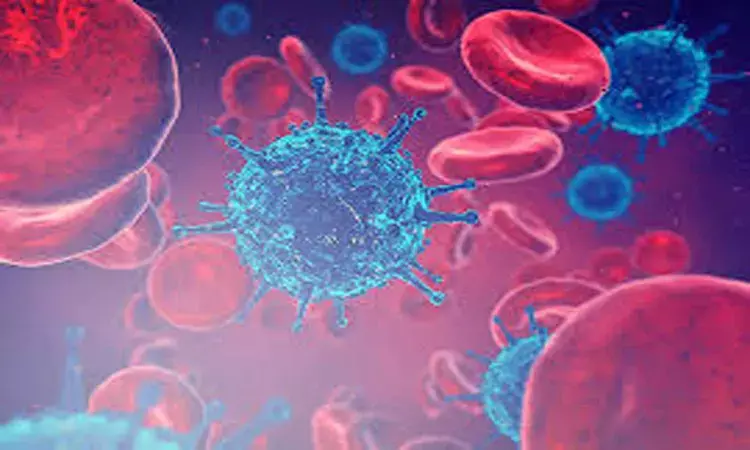- Home
- Medical news & Guidelines
- Anesthesiology
- Cardiology and CTVS
- Critical Care
- Dentistry
- Dermatology
- Diabetes and Endocrinology
- ENT
- Gastroenterology
- Medicine
- Nephrology
- Neurology
- Obstretics-Gynaecology
- Oncology
- Ophthalmology
- Orthopaedics
- Pediatrics-Neonatology
- Psychiatry
- Pulmonology
- Radiology
- Surgery
- Urology
- Laboratory Medicine
- Diet
- Nursing
- Paramedical
- Physiotherapy
- Health news
- Fact Check
- Bone Health Fact Check
- Brain Health Fact Check
- Cancer Related Fact Check
- Child Care Fact Check
- Dental and oral health fact check
- Diabetes and metabolic health fact check
- Diet and Nutrition Fact Check
- Eye and ENT Care Fact Check
- Fitness fact check
- Gut health fact check
- Heart health fact check
- Kidney health fact check
- Medical education fact check
- Men's health fact check
- Respiratory fact check
- Skin and hair care fact check
- Vaccine and Immunization fact check
- Women's health fact check
- AYUSH
- State News
- Andaman and Nicobar Islands
- Andhra Pradesh
- Arunachal Pradesh
- Assam
- Bihar
- Chandigarh
- Chattisgarh
- Dadra and Nagar Haveli
- Daman and Diu
- Delhi
- Goa
- Gujarat
- Haryana
- Himachal Pradesh
- Jammu & Kashmir
- Jharkhand
- Karnataka
- Kerala
- Ladakh
- Lakshadweep
- Madhya Pradesh
- Maharashtra
- Manipur
- Meghalaya
- Mizoram
- Nagaland
- Odisha
- Puducherry
- Punjab
- Rajasthan
- Sikkim
- Tamil Nadu
- Telangana
- Tripura
- Uttar Pradesh
- Uttrakhand
- West Bengal
- Medical Education
- Industry
Sustainable diet leads to fewer blood clots in the brain

The risk of bleeding or blood clots in the brain is lower if your diet is sustainable. This is shown by a new research result from Aarhus University. The results have just been published in the scientific journal Stroke.
There should be more vegetables and less meat on the plate in front of us. A study from the Department of Public Health shows that a sustainable diet not only benefits the climate, but also benefits your health.
"If adult men or women follow a sustainable diet and the Nordic recommendations for dietary fibre intake, then we see a lower risk of bleeding or blood clots in the brain," says Christina Dahm, who is behind the study.
This knowledge is important, as a previous study from the UK found that vegetarians had a higher risk of brain haemorrhages compared with those who ate meat. These findings received a lot of publicity.
"A vegetarian diet is very similar to a sustainable diet, and since we need to eat more sustainably in the future, it was a rather worrying result. Our results show that it is safe to eat a sustainable diet," says Daniel Ibsen, who has also contributed to the study.
The researchers used data from the Danish Diet, Cancer and Health population study. A total of 57,053 adults aged 50 to 64 took part in the study in the early 1990s, and answered questions about their eating habits and lifestyles. In the following years, researchers have been able to use the Danish registers to identify participants who developed bleeding and blood clots in the brain.
"The food we eat has a crucial influence on our health, but also affects our climate and the environment. We need to eat more sustainably, but of course it's important that we also have a healthy diet," says Christina Dahm.
According to Christina Dahm, the study should be followed up in the context of today's Danish dietary habits, which contain an increased amount of new sustainable foods such as oat milk and plant-based meat alternatives, as well as studies that examine more specifically how Danes can become better at complying with climate-friendly dietary advice.
At the beginning of the year, the Ministry of Food, Agriculture and Fisheries, Denmark, and the Danish Veterinary and Food Administration, launched some climate-friendly dietary recommendations that resemble sustainable diets. The recommendations will contribute to achieving the Danish Climate Act's goal of reducing Denmark's greenhouse gas emissions by 70 per cent in 2030, while at the same time boosting public health.
https://www.ahajournals.org/doi/10.1161/STROKEAHA.121.036738
Hina Zahid Joined Medical Dialogue in 2017 with a passion to work as a Reporter. She coordinates with various national and international journals and association and covers all the stories related to Medical guidelines, Medical Journals, rare medical surgeries as well as all the updates in the medical field. Email: editorial@medicaldialogues.in. Contact no. 011-43720751
Dr Kamal Kant Kohli-MBBS, DTCD- a chest specialist with more than 30 years of practice and a flair for writing clinical articles, Dr Kamal Kant Kohli joined Medical Dialogues as a Chief Editor of Medical News. Besides writing articles, as an editor, he proofreads and verifies all the medical content published on Medical Dialogues including those coming from journals, studies,medical conferences,guidelines etc. Email: drkohli@medicaldialogues.in. Contact no. 011-43720751


